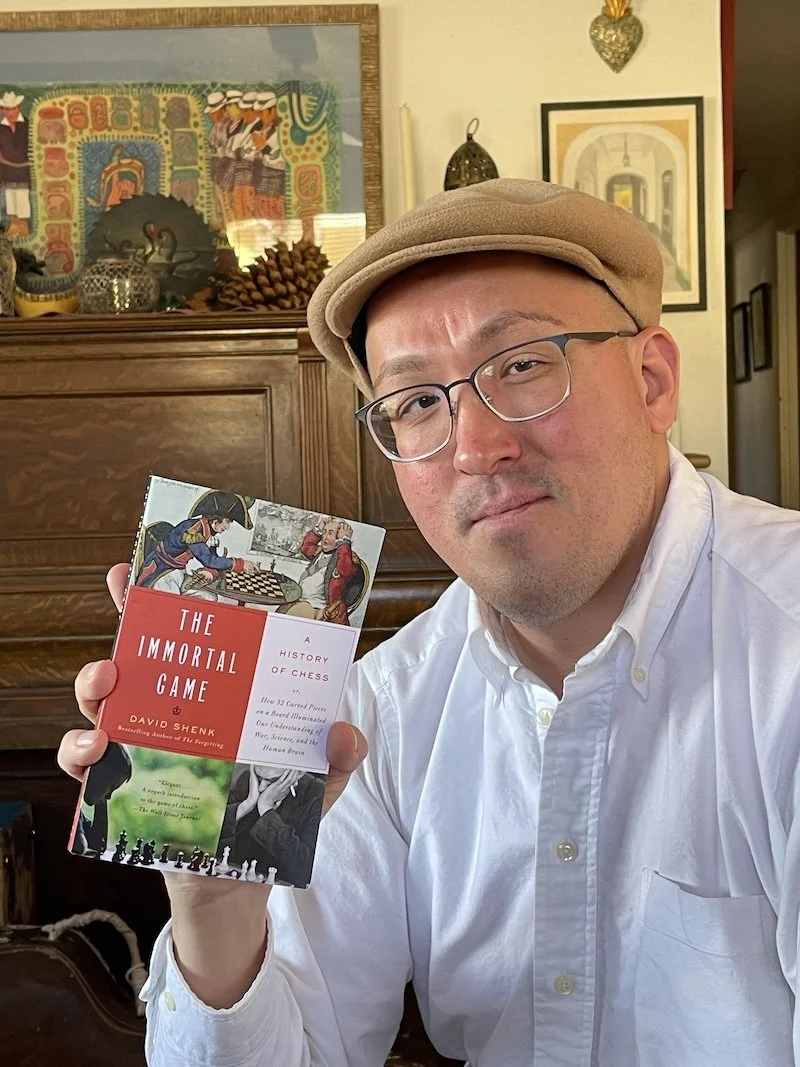CCHE 690 Perspective Paper
Perspective Paper: Chess and Making Meaning of General Education Courses
Nick Mueller
College of Education, Northern Arizona University
CCHE 690: Master’s Seminar
Dr. Cynthia D. Villarreal
October 30, 2024
Leaders in higher education have the opportunity to ride the ongoing chess boom and connect dated general education courses with meaningful trends in history, technology, culture, and learning. According to a September 2022 article in the New York Times, “chess.com saw their number of monthly active users double from roughly 8 million to nearly 17 million.” In early 2023, chess.com shared that their servers were struggling because more than 250,0000 new accounts were being created each day. This is the kind of engagement desperately needed in foundational courses offered by universities across the United States.
Students taking general education courses, like the first-year composition classes I teach, frequently express that they do not understand why they have to take such coursework. They argue that it gets in the way of the material they are re truly passionate about. They say that they will never use the knowledge or skills from gen ed history or Spanish or sociology. In other words, there is an implicit argument that they have learned too little in their previous education to know 1) how little they know in general and 2) that they have yet to understand that such knowledge and skills might become useful via transfer.
In a 2023 Inside Higher Education article, Mintz reminds us that there are many opportunities to connect with students’s interests and long-term global trends. Among them, he includes broadening the canon, challenging victor narratives, encouraging a holistic view of subjects, exploring the human condition — how we achieve a place in the world and the transpersonal forces that guide that achievement. And chess can serve as the common connection, thus offering something for almost any student.
Chess connects seemingly disparate areas of study seamlessly. It is the enduring example of gamification in the western world. For about 1,500 years, chess has instructed royalty and peasants, merchants on the Silk Road, politicians and philosophers like Ben Franklin, and, most recently, Nobel laureates in chemistry (McGourty, 2024). We can connect more of our students to true, active interdisciplinary study through this great game.
And the best news for college leaders? The courses already exist.
Thanks to pioneering educators like Alexey Root, and more recently, myself, colleges can avail themselves of low-cost courses that span the common era in the west, that are multimodal and interactive, and most importantly, support our students meaning-making. Students of color can watch Brooklyn Castle (2012) for free on YouTube and feel perceived within higher education while seeing how chess can build and heal in an underserved community. Art and humanities students can ponder alongside STEM scholars about “Moxon’s Master” (1899), a short story by American author Ambrose Bierce, one of the first depictions of robotics in the west. Again, for free. Award-winning author David Shenk’s masterful The Immortal Game (2011) will unify the course. A copy is less than $10. That is the only book students will need to buy.
In the online version of the class, students who would not ordinarily interact will play chess with each other on lichess.org (n.d.), a well-regarded, popular, and free chess platform. STEM students might even discover that their peers in the arts and humanities are also rigorous critical thinkers.
Interdisciplinary chess course are the low-cost, ready-made solution college leaders can integrate into various general education requirements. On the student side, it could be the meaning-making opportunity they have sought that can tie their more of their general education learning together and clarify its profound value.
References
The best free, adless Chess server. (n.d.). lichess.org. https://lichess.org/
Chess.com Team (CHESScom). (2023, January 23). Chess is booming! and our servers are struggling. Chess.com. https://www.chess.com/blog/CHESScom/chess-is-booming-and-our-servers-are-struggling
McGourty, C. (2024, October 9). AlphaZero creator Demis Hassabis wins Nobel Prize for Chemistry. Chess.com. https://www.chess.com/news/view/demis-hassabis-nobel-prize-chemistry
Mintz, S. (2023, September 21). Reimagining gen ed. Inside Higher Ed | Higher Education News, Events and Jobs. https://www.insidehighered.com/opinion/blogs/higher-ed-gamma/2023/09/21/reimagining-gen-ed
myskola+. (2018, March 2). Brooklyn Castle: About New York’s I.S. 318 chess kids! [Video]. YouTube. https://www.youtube.com/watch?v=PPb4bKpO4zc
Shenk, D. (2011b). The Immortal Game: A History of Chess; Or How 32 Carved Pieces On a Board Illuminated Our Understanding of War, Art, Science, and the Human Brain. Anchor Canada.
Unfortunately, I could no longer access this article for free. Therefore I could not provide a proper reference list entry. https://www.nytimes.com/2022/06/17/crosswords/chess/chess-is-booming.html


